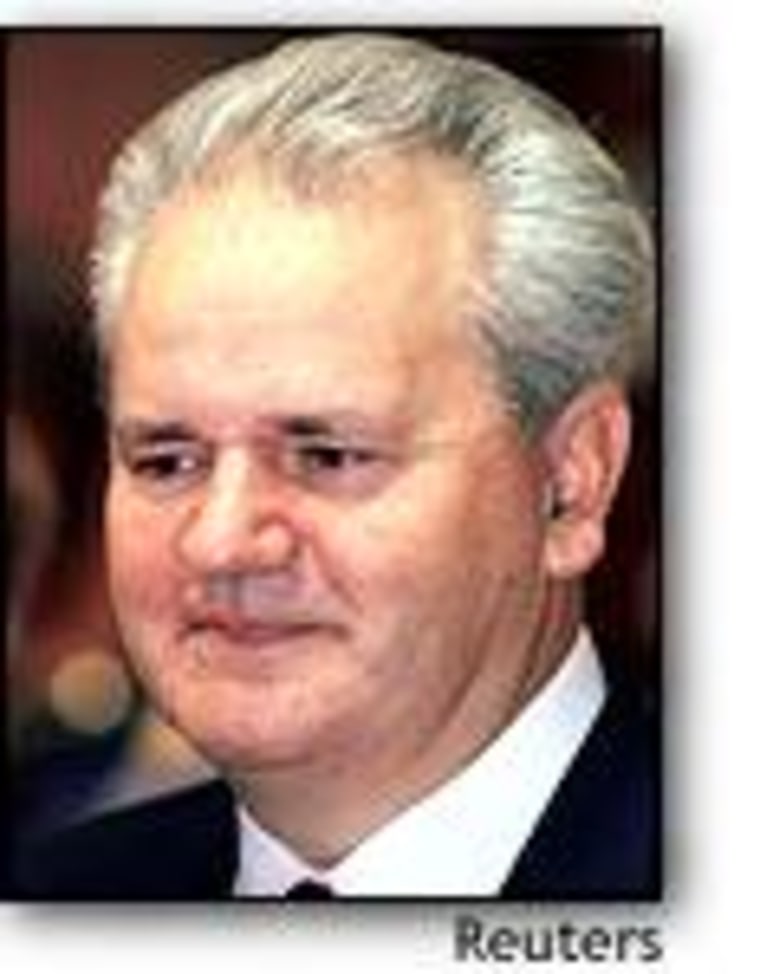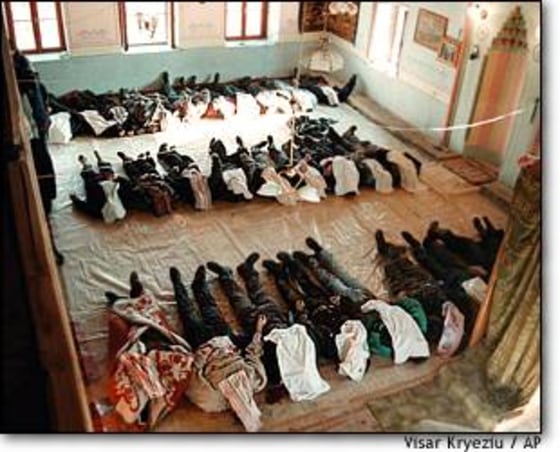There used to be a joke about reader mail around The New York Times Washington bureau, where I began my career as a lowly, coffee-making clerk. “If you don’t like nasty mail, don’t write about the Middle East, Cuba or Northern Ireland.” That advice has stood the test of two decades with one important update: Serbia.
The hateful, self-justifying email began arriving at my desk on Monday even before I did. The authors, with no exception, were Serbs and Serbian-Americans furious that we at MSNBC had “fallen again” for “the latest trick of the Albanian terrorists,” as one put it. Surely, these people said, MSNBC must know the weekend’s 45 “massacre victims” — even the 12 year-olds, especially the 12-year-olds — were killed by the Albanians and planted in a ditch just to make Serbia look evil.
Many of these people had corresponded before and I have always answered, even when the e-mails were riddled with personal insults, racial stereotypes and threats. “Don’t bring your children to Serbia, you bastard!” one brave warrior warned me.
Another began: “Serbs are the victims, not the murderers!” Indeed, in a manner of speaking, they are.
Pity Serbia. Victim of centuries of oppression under the Ottoman Empire; victim of the tangled alliances of World War I; victim of the Nazis (and their murderous Croatian puppet regime) in World War II; then victims again to the iron will of Tito and his often brutal vision of a communist paradise when the war ended.
Yes, pity Serbia. And many in the West did just that. The Serbs, unlike some other European states — the Hungarians, the Romanians, the Bulgarians, even the Italians — fought on the right side, from a moral standpoint, of the two World Wars. They also managed to stay outside the Soviet orbit during the Cold War, no small trick for a Balkan nation. The West admired Serbia for its quixotic courage and its stubborn independence.
THAT WAS THEN, THIS IS NOW
It would be very unfair to tar all Serbs with the bloody brush that its nationalistic government has dragged across former Yugoslavia since 1991. Yugoslav

President Slobodan Milosevic and his left- and right-wing supporters are not widely loved in Serbia. Indeed, there is some evidence they are less popular at the moment than at any time since his rise to power in the late 1980s.
It’s also true that Serbia has a leg to stand on in the Kosovo argument. Kosovo is, after all, a recognized piece of its territory — a fact that bedevils NATO and the U.S. State Department. Ethnic Serbs have been harried and sometimes murdered by the local Albanian majority for well over a decade, in part as a reprisal for the state of siege Milosevic imposed beginning in 1987, when he rescinded the autonomy Kosovo once enjoyed in the federal Yugoslav state.
The ethnic Albanians, too, have flirted with ethnic cleansing and the most radical of them — those now commanding the Kosovo Liberation Army — want nothing less than to create a “greater Albania” that would link Albanian proper with the Albanian-dominated regions of Serbia and Macedonia.
THEIR OWN WORST ENEMY
But in the truest sense, Milosevic also is no dictator. While he is dictatorial and often brutal in his methods, Serbia cannot escape the fact that Milosevic has been elected again and again since the end of the communist Yugoslav state, first as Serbia’s leader and then to his current job as Yugoslavia’s president. Serbia’s opposition has been free in the meantime to unite and oppose him; they have occasionally taken to the streets and won some local posts. But they have an Achilles heel: they are led by men who themselves have no great love for Bosnian Muslims, Croats or ethnic Albanians.
As Harry Truman once said, in a race between a Republican and a Democrat who talks like a Republican, the Republican will win every time. Serbia’s opposition may criticize and sometimes bother Milosevic, but on the big issues of nationalism they rarely aver. The result? Through wars, ethnic massacres, economic deprivation and the destruction of their national reputation, Serbs have returned Milosevic to office. Serbs, like their former German tormentors, voted freely for their darker selves.
To those whose mail I characterized above — and you’ll most certainly recognize yourselves — don’t wait for this week’s response. This is it. You have won your battle — YOU now speak for Serbia!
Pity Serbia.
Michael Moran is MSNBC’s International Editor>
